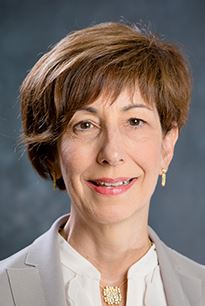DIA 2021 Promises Stellar Panels And An Improved Virtual Experience

By Ed Miseta, Chief Editor, Clinical Leader

The emergence of the COVID pandemic in 2019 hit a lot of organizations in the R&D and clinical space by surprise. The companies and organizations that convene stakeholders were no exception. One of those organizations was DIA. When shutdowns began to sweep across the globe in March, DIA’s Global Annual Meeting, which brings together thousands of attendees from around the world, was just 90 days away.
“We were one of the first organizations that decided back in March to make changes to our events,” says Barbara Lopez Kunz, global chief executive for DIA. “Our Europe Annual Meeting was scheduled for the first week of March and that is when the reality of the pandemic came into view, impacting events around the world. DIA had been investing in digital transformation for years as part of our strategic plan, and we were ready to make our events virtual rather than postponing or delaying them. Our guiding principle was to stick to our mission in getting medicines to patients, a mission never more critical than during the pandemic.”
I believe the decision was a smart one for the organization. With the limited time available to convert and transform an in-person event to a virtual one, the workload for the planning team had to be enormous. Despite the time and effort that was involved, Kunz notes there is a lot that her team learned from the experience.
“People have been integrating technology into events for a long time, and we found there were platforms available,” notes Kunz. “We performed a quick scan of the available options and selected one that had the elements we were looking for. We needed the ability to provide the scientific and policy aspects of the conference, as well as the networking opportunities for our attendees, including the important advances that typically take place in a traditional exhibition hall. We evaluated our members’ and stakeholders’ needs and chose the platform we felt would provide the best experience for our solution partners and attendees.”
Feedback Leads To Improvements
DIA received very positive feedback on the educational components of the platform. Attendees seemed to enjoy the virtual sessions, the presentations, and the ability to interact and ask questions. They were less positive about the ability to network virtually.

One of the main things DIA learned in speaking with attendees and exhibitors since adopting the virtual conference model is the desire to have options in coming together. Attendees of DIA’s annual meetings are looking for the ability to choose what components they attend in person, through technology, and even over time. They want to access topics they may have missed during the conference after it has concluded to ensure they are fully apprised of the significant learning that is the basis for the meeting. Kunz notes they will need to be provided with the opportunity to have choices, and in the future those opportunities will exist.
“Facilitating networking opportunities is essential,” says Kunz. “This year’s meeting will offer more content-based discussions, opportunities for partners to share and discuss their value propositions, as well as innovation theaters and roundtable discussions to promote awareness and dialogue. These opportunities will allow everyone to be part of the conversations.”
The DIA 2021 Annual Meeting will feature a new platform that is much more integrated and has unique opportunities for networking. There are chat rooms for attendees with similar interests and the opportunity to request one-on-one interviews and meetings. The lobby allows attendees to centrally see where everything is, like a map at a convention center. An exhibitor showcase will encourage networking by offering prizes and booth giveaways that are relevant and substantial to garner the interest of attendees.
“There is also an area on the platform that will assist users in navigating it,” says Kunz. “If you can’t find something, the platform makes it easy for attendees to locate rooms and sessions without having to spend several minutes clicking through different links. We believe this will present users with the total package of education, networking, and business development.”
A Focus On Collaboration
The theme for this year’s meeting is Collaboration Without Boundaries. That was inspired, in part, due to the pandemic. Kunz notes 2020 was a rare time where every country around the globe began the fight against a common health challenge.
“When it comes to the pandemic, if we do not get everyone on the same page, we will not be able to adequately curb or contain it,” notes Kunz. “We will also be ill prepared for the next one. In this industry, we are all aware of the issues and opportunities in healthcare and therapeutic development. But this pandemic exposed existing issues in profound and dramatic ways. We clearly have much to do to address the many urgent health challenges around the world.”
On example of Collaboration without Borders mentioned by Kunz is the adoption of decentralized trials and remote monitoring, talked about for years, but never gaining much traction until COVID impacted studies last year. When trials were disrupted last year, DIA developed and provided a sharing and learning opportunity on this topic and many others throughout 2020, attracting thousands of life sciences professionals who were able to learn from the community to continue their important work.
“We are very motivated to address those issues that we saw bubbling to the surface,” states Kunz. “Many of those critical topics under the broad topic of Drug Development Transformation are included in the program for the 2021 DIA Annual Meeting. The issues require the type of collaborative discussion that takes place at our meetings and webinars. Topics related to decentralized trials and public health preparedness will also be part of our agenda. We will also cover the topic of regulatory flexibility and harmonization and hear from the regulatory community on steps taken to accelerate approvals, and how those steps can be made a part of how we operate. Healthcare inequities and disparities will also take center stage at the event.”
Regulators Play A Key Role
Regulators will be part of many sessions including the popular Diamond Sessions that many attendees look forward to. An opening panel will feature experts from around the world addressing the important topic of misinformation and how it leads to conflicting information on what is happening in drug development and can lead to a distrust of science and the breakthroughs that result, such as the Covid-19 vaccines and other therapies.
“All of these issues seem to be so much more urgent and important now than they have been in the past,” adds Kunz. “We need to work closely together to get things right.”
Two of the most highly attended Diamond Sessions are also making a return in 2021. One is the FDA/EMA Town Hall, where leaders of both agencies will discuss collaboration and advances in regulatory science. The FDA Town Hall is also returning and will feature senior leaders discussing what is new at that agency.
It has already been announced that the keynote speaker for this year’s Annual Meeting will be Kenneth Frasier, the chairman and CEO of Merck who has announced he will be retiring in June 2021. Kunz notes that what Frasier has stood for throughout his career aligns well with what DIA stands for – the importance of R&D and high-quality science to enable innovative medicines as well as the criticality of talent development, both topics essential to productive societies around the globe.
“We are honored that Mr. Frazier will address our members at DIA 2021, sharing his perspectives and inspiring our participants to collaborate as we address the pressing challenges in health,” adds Kunz.
This year’s virtual DIA Annual Meeting will take place June 27 to July 1, 2021. To register or view the agenda, please click here.

